Commercial Truck Leasing: What You NEED TO Know
September 15, 2020
I am a serial entrepreneur and a consumer advocate. When I’m not helping car buyers, I love working on ventures that have a positive impact. I run a cause marketing agency and serve on the board of Vayu Global Health where we are disrupting the medical industry and preventing the needless deaths of mothers and babies during childbirth.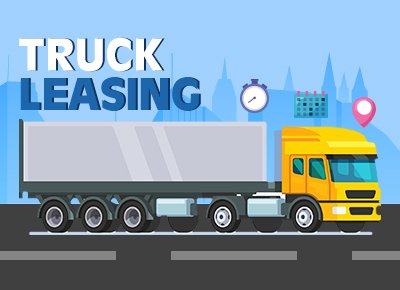

While buying or leasing a company car is a great option for most businesses, some may require a much larger vehicle. If you need a semi-truck for your business, and don't have enough capital for a large initial investment, then you can take out a loan to purchase or obtain a commercial truck lease.
Understanding the differences between a semi-truck loan and a commercial truck lease is crucial for deciding which is the right option for you.
In this guide, we break down everything you need to know about a commercial truck lease.
Table of Contents
- What's a Commercial Truck Lease?
- Commercial Truck Loan vs Lease
- Benefits and Considerations of a Semi-Truck Lease
- Should I Lease or Buy a Truck for my Business?
- Types of Commercial Truck Leases
- How Much Does it Cost to Lease a Commercial Truck?
- What Information Does the Semi-Truck Leasing Company Need?
- Can I Lease a Semi-Truck with Bad Credit?
- Can I Terminate a Truck Lease Early?
- What Should I Look for in a Truck Leasing Agreement?
- Can I Deduct Commercial Lease Payments from my Taxes?
- Renting vs Leasing a Truck
- Best Car Deals by Category
- Frequently Asked Questions
What's a Commercial Truck Lease?
A semi-truck lease works very similarly to any other lease. You must agree to the lease terms, and then you pay a monthly fee to use the vehicle for the allotted time. The leasing company is responsible for the majority of repairs and maintenance.
A typical commercial truck lease term is three to five years. After the lease term ends, you have the option to renew the lease, return turn the vehicle, or buy it. Should you choose to purchase the truck, it will be for the cost of its residual value which is outlined in the original lease contract.
Commercial Truck Loan vs Lease
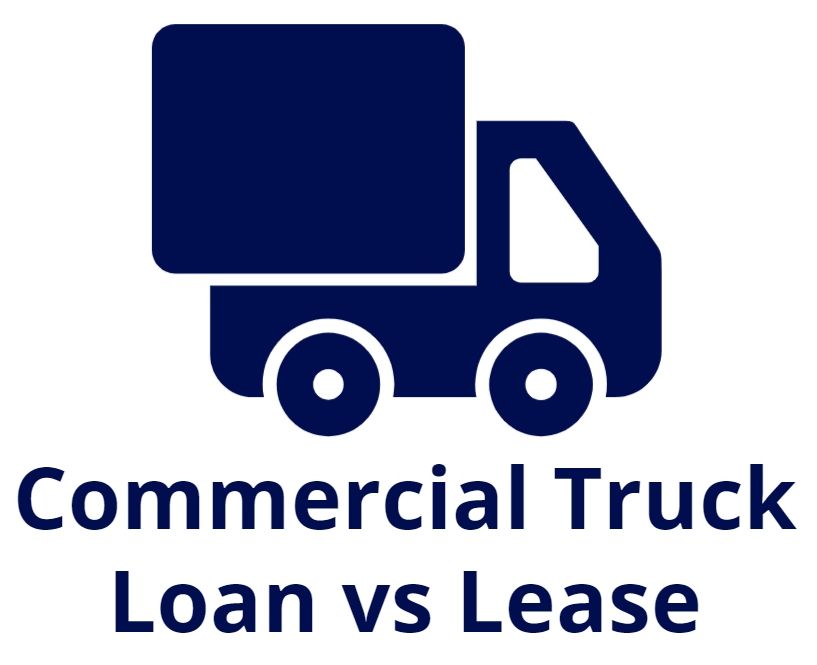 The other feasible option is to take out a truck loan. Similarly, this will require you to make a monthly payment for a set amount of time. However, when you pay toward a commercial truck loan, you are making payments toward the actual value of the truck. Once the loan term is completed, you will own the truck as long as you have made all monthly payments.
The other feasible option is to take out a truck loan. Similarly, this will require you to make a monthly payment for a set amount of time. However, when you pay toward a commercial truck loan, you are making payments toward the actual value of the truck. Once the loan term is completed, you will own the truck as long as you have made all monthly payments.
So, the primary difference between a commercial truck loan and the lease is vehicle ownership. With a lease, you are paying to rent each month, and you do not own any part of the vehicle at the end of the lease term. With a loan, you are paying each month to own the vehicle, and by the end of the loan term, you would own the vehicle fully.
Benefits of Buying
- Own your own vehicle so you can use it how you want and make any upgrades.
- Pay toward ownership.
- Receive a greater variety of choices for the truck.
Drawbacks of Buying
- More expensive monthly payments than a lease.
- Must put down a significant down payment.
- Very difficult to do with poor credit.
- You are responsible for all expenses.
Recommended: Check out our picks for the best pickup truck lease deals for this month.
Benefits and Considerations of a Semi-Truck Lease
There's a lot to consider when choosing between a commercial lease or loan.
Is it a Good Idea to Lease a Semi-Truck? The Benefits
- Lower monthly payments. Lower monthly payments than a loan.
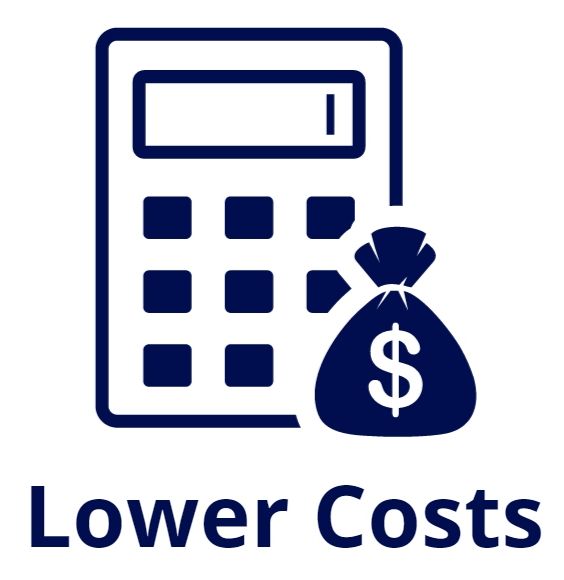
- No down payment. Does not typically require a down payment and you are not obligated to purchase at the end.
- Easy to upgrade. The ability to easily upgrade to a newer model once the lease term ends.
- More control. Get the big rig you need without paying the full price immediately.
- Small companies. Start-ups, small companies, and larger trucking companies can benefit from a truck lease.
- Focus on other aspects of business. Defer high purchasing costs to free up capital and credit sources for other expenses.
- Tax write-off. Lease payments can be written off as a tax expense.
- Maintenance. Most leasing agreements cover maintenance repairs.
Is it a Good Idea to Lease a Semi-Truck? The Drawbacks
However, there are some considerations to think about before leasing a commercial truck. Some downfalls include:
- More expensive. If you do purchase the truck at the end of the lease, you will pay more overall than if you had gotten a loan.
- Additional insurance. You may have to take out additional insurance with a truck lease.
- Paying a loan. You are paying to use someone else's vehicle, not paying toward an investment.
- Less control. You cannot modify or upgrade the truck.
Should I Lease or Buy a Truck for my Business?
When deciding to lease or buy a commercial truck, you must consider your long-term goals and needs. What type of truck cab and bed size are you looking for? How is your credit? When you lease, you can always drive a newer truck with modern features, and you can upgrade at the end of each lease. However, when you buy you have full control over your driving. But, you'll have to use that truck for a while and you'd have to sell and purchase a new vehicle to upgrade, which you won't be able to do as often as when leasing.
Types of Commercial Truck Leases
The premise of a basic lease act is that you can extend the rental agreement. However, there are common clauses to consider for a truck lease.
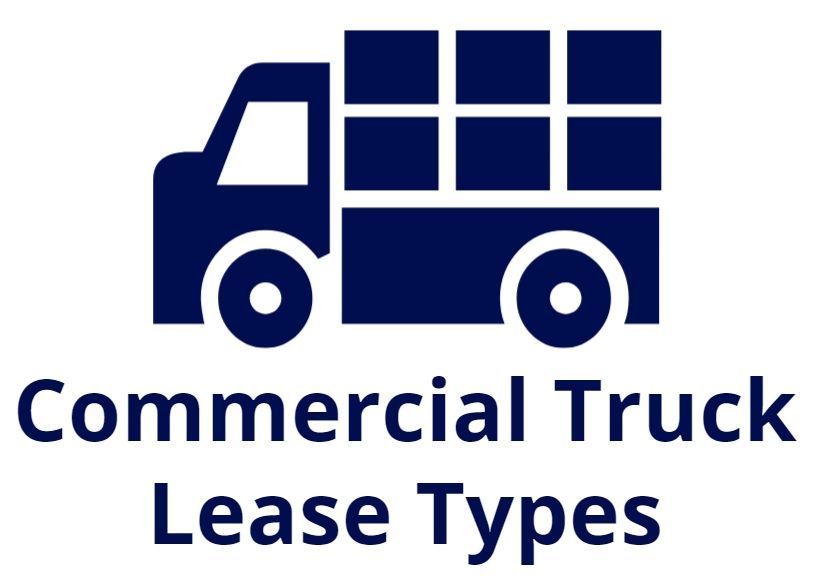 Full Service. The full-service lease includes maintenance for the semi-truck at no additional costs. The full-service component may expire after a certain number of miles, so always be sure to find out the details of which services/parts are covered and any limits.
Full Service. The full-service lease includes maintenance for the semi-truck at no additional costs. The full-service component may expire after a certain number of miles, so always be sure to find out the details of which services/parts are covered and any limits.- Terminal Rental Adjustment Clause (TRAC). This clause allows you to buy the semi at the end of the lease or return it to upgrade. The residual value is the amount that you'd pay if you bought at the end of the lease, and the residual value determines your monthly payments.
- Dollar Buyout. You can include an option to buy the truck for $1.00 at the end of the lease. If you absolutely know you will need the truck at the end of the lease, this may be a good option, but be prepared to pay much higher monthly payments.
How Much Does it Cost to Lease a Commercial Truck?
When leasing a truck for commercial use, you can lease from a dealer or trucking carrier. Most dealers and truck carriers will offer lease-to-own programs which can be helpful for those with bad credit.
Leasing a new semi-truck costs an average of $1,600 to $2,000 per month. For used semi-trucks, the average cost is $800 to $1,600. If you lease from a dealer, you may also have a down payment of around $1,000. Additionally, you'll have ongoing expenses for insurance, fuel, and possibly maintenance depending on your lease. If you are leasing several trucks, you may be able to secure a discount or deal.
Recommended: Check out our guide on fleet discounts offered by each manufacturer.
What Information Does the Semi-Truck Leasing Company Need?
Before leasing from a company, you'll have to provide some information including:
- A proposed repayment plan.
- The # and type of vehicles you need to lease.
- Customization expenses.
- Certified and prepared financial statements.
Can I Lease a Semi-Truck with Bad Credit?
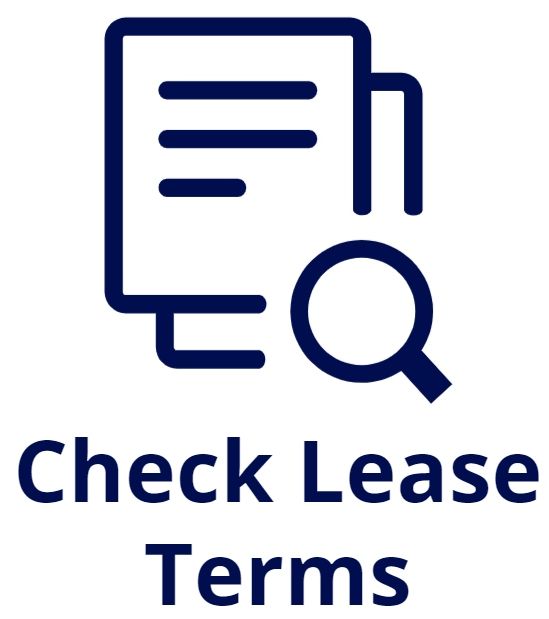 There are some semi-truck leasing companies that offer leases for trucking companies or independent truckers with lower credit. These companies typically provide a faster approval process and low or no down payment, but with much higher rates. Make sure to carefully research any leasing companies offering to lease to you with bad credit. Read all agreements carefully.
There are some semi-truck leasing companies that offer leases for trucking companies or independent truckers with lower credit. These companies typically provide a faster approval process and low or no down payment, but with much higher rates. Make sure to carefully research any leasing companies offering to lease to you with bad credit. Read all agreements carefully.
Your best bet is to start by increasing your credit score by making payments on time, paying down credit card limits, and limiting applications for new credit cards or loans.
Can I Terminate a Truck Lease Early?
Just like with personal leases, terminating a commercial truck lease early can lead to serious penalties. You may face a penalty fee up to 10% of the remaining total, and have to pay the cost of transporting and insuring the truck back to the leasing company. For full-service contracts, you will likely have to pay for up to 9 months of maintenance fees, and you lose your security deposit. It's best to avoid early lease termination by being strategic about entering a lease.
What Should I Look for in a Truck Leasing Agreement?
- Mileage restrictions. Pay attention to the yearly limit and any associated fees for going over the limit.
- Maintenance cap. Most legitimate companies will place a limit on what they can charge you for maintenance.
- Hidden fees. Always ask upfront about undisclosed fees before signing a lease.
- Terms. Make sure the terms are clear, including the length, interest rate, payment schedule, and final asking price.
- Return fees. If you don't renew the lease, some companies charge excessive "wear and tear" fees. Read closely to check for this information
Can I Deduct Commercial Lease Payments from my Taxes?
Yes! Commercial lease payments are fully tax-deductible. When you purchase the vehicle, you can deduct only the interest of the loan, but when you lease a commercial truck you can deduct the entire cost of the lease each month.
Renting vs Leasing a Truck
Another option is to rent a semi-truck. Renting is similar to leasing in that you do not own the vehicle. Typically, renting is best if you need a vehicle for a short-term or a temporary situation. For long-term use, renting is not financially reasonable, and you'll want to lease.
No matter if you decide to rent, buy, or lease a commercial truck, you need to be diligent about your contract. This is especially critical for truck leases. Make sure that leasing is the best option for your company and that you understand all terms and conditions. Ask immediately if something is unclear and be sure to get several quotes before signing.
Best Car Deals by Category
Frequently Asked Questions
What is a commercial truck lease?
A semi-truck lease works very similarly to any other lease. You must agree to the lease terms, and then you pay a monthly fee to use the vehicle for the allotted time. The leasing company is responsible for the majority of repairs and maintenance.
Should I lease a semi-truck for my business?
Leasing is often a good option for acquiring a semi-truck, but you will have to consider your own vehicle usage and finances. Leasing requires less money upfront, lower down payments, predictable monthly payment, and tax advantages.
How much does it cost to lease a commercial truck?
The monthly lease price will depend on the type and size of the truck. For semi-trucks, a commercial lease is typically over $1,000, but this is still lower than the cost of financing a semi-truck.
How much is commercial vehicle insurance?
You'll need commercial vehicle insurance when you lease a truck. This kind of insurance offers higher liability limits and fewer limits on the number of vehicles in your plan. It can cost upwards of $800-$1,200 per month per vehicle, possibly overshadowing the cost of your lease.
Posted in Car Buying Tips |



